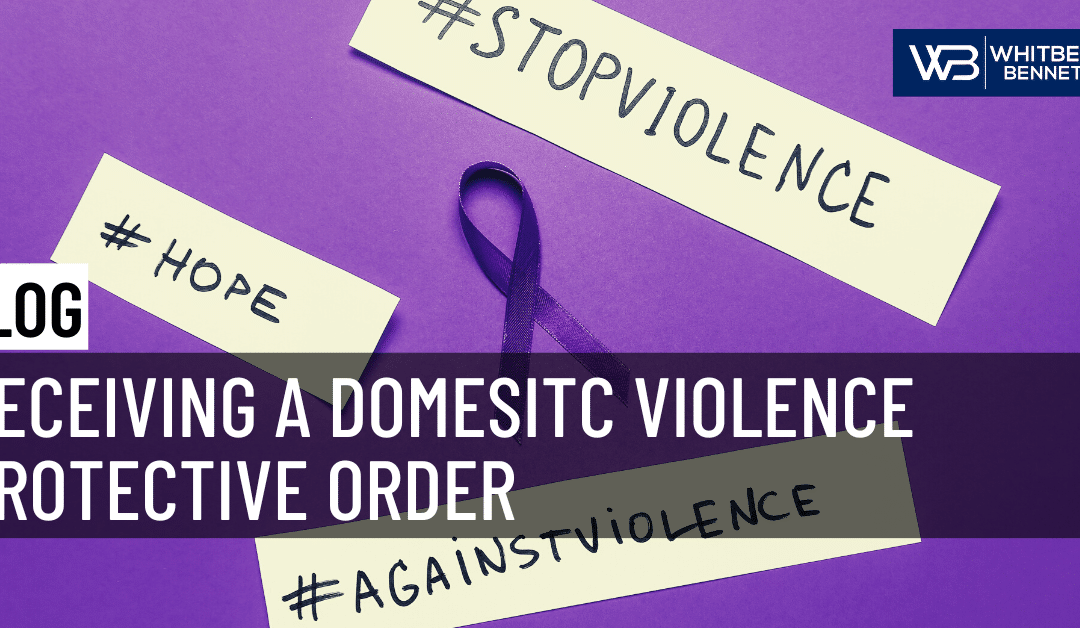Every state in the country has some form of legal order to prevent domestic violence. Many states, like Virginia, call these orders “protective orders.” Other states call them restraining orders. Whatever the label, domestic violence orders typically prevent most if not all contact between the alleged abuser and the alleged victim. In some states, these orders can also give one party exclusive possession of a shared residence, require anger management or counseling, determine temporary custody, and much more. Due to the COVID-19 crisis, previously unhealthy relationships have severely worsened, as couples are forced into quarantine together. Many relationships tested by health complications, job loss, pressures of quarantine, and a host of other issues, have caused a spike in domestic violence across the country, including a 76% increase in calls to domestic violence hotlines in states like Virginia. While things may seem bleak, please remember that you are not alone. What’s more, whatever the context of your situation, domestic violence is never warranted nor is it the answer.
The person seeking a protective order is referred to as the “petitioner,” while the person who the protective order is entered against is called the “respondent.” In Virginia, there are three types of protective orders: (1) emergency protective orders, (2) preliminary protective orders, and (3) protective orders. While the protective order cannot ultimately stop an individual from acting – such as incarceration could – the protective order does establish legal protections for the petitioner. Should the respondent violate any of the restrictions in order, they can be arrested and charged with a crime that if convicted carries mandatory jail time in Virginia. All three types of protective orders can be issued by a judge or magistrate at all times, day or night, any day of the year.
Emergency protective orders expire after 72 hours and can’t be extended. Typically, these come at the request of a police officer following a domestic violence arrest where the officer believes the victim remains in danger from the abuser. However, an arrest is not a prerequisite for an emergency protective order. In other words, you can request the court or magistrate’s office issue an emergency protective order if you are in fear of acts of violence before an arrest and without the help of a police officer.
If at the end of the 72 hour period, you still feel threatened by the abuser, you can request the court enter a preliminary protective order. Additionally, the petitioner may request a preliminary protective order without having received a prior emergency protective order. These preliminary orders remain in force for 15 days, or until the court holds a hearing on the matter. A preliminary protective order can be issued without requiring the respondent to appear; however, a preliminary protective order may only be issued by a judge, not a magistrate. Moreover, in addition to the standard paperwork filed with the court, the judge will require you to provide a sworn statement, or “affidavit,” describing the reason for the order, such as the incident(s) of abuse, acts of violence, and threats of future violence or abuse. Finally, you must legally “serve” the respondent, which your attorney or the sheriff’s office can help facilitate. Based upon the information you provide to the court, including in your sworn statement, the judge will determine if a preliminary protective order is warranted.
Finally, the court has the authority to issue a full Protective Order, which remains enforceable for up to two years. These may only be issued by a judge and may only be issued once there has been a full hearing on the merits of your claims – giving the alleged abuser the opportunity to be heard and defend themselves. It is vital that you show up on the date of the hearing because failing to do so means the prior emergency protective order or preliminary protective order ends then and there. However, if the respondent fails to appear, you may still obtain an order against them if they were properly given notice of the proceedings. Either way, it is important to consult with an attorney experienced in domestic violence to give yourself the best chance of getting a protective order or defending against false allegations.
In response to Governor Ralph Northam’s request, the Supreme Court of Virginia issued an order declaring a judicial emergency for all courts across Virginia due to the pandemic. However, one of the exceptions to this is domestic violence cases. In most jurisdictions you can still get into court for a hearing if you are the victim of domestic violence, so talk to an attorney as soon as you can if your case involves domestic violence. You may have more access to the courts than in other domestic relations cases.
If the violence or threats you are suffering come from an individual such as a spouse, ex-spouse, parent, child, step-parent or step-child, sibling, half-sibling, grandparent, grandchild, persons with whom you have a child in common, or in-laws who share the same home, the courts refer to this as “family abuse.” Petitioners in these situations will likely need to work with the local Juvenile and Domestic Relations District Court because of the close relationship between the parties. If you experience threats or violence from someone other than those on that list, you will likely need to work with the local General District Court. While it may seem unnecessary to distinguish these relationships, the courts’ authority to respond may change depending on that association. Make sure you talk to an attorney before you file your protective order case because filing in the wrong court can delay your case substantially.
To learn how our team can help you with your domestic relations matter, contact WhitbeckBennett by calling 800-516-3964 or by emailing clientservices@wblaws.com.

Whitbeck Bennett
Whitbeck Bennett is proud to be a successful, full-service law firm with a strong focus on Family Law, Mental Health Law, and Education Law. We provide legal services to families and individuals, helping them get the best result possible through experience and compassion. To learn more about our Attorneys, click here.
